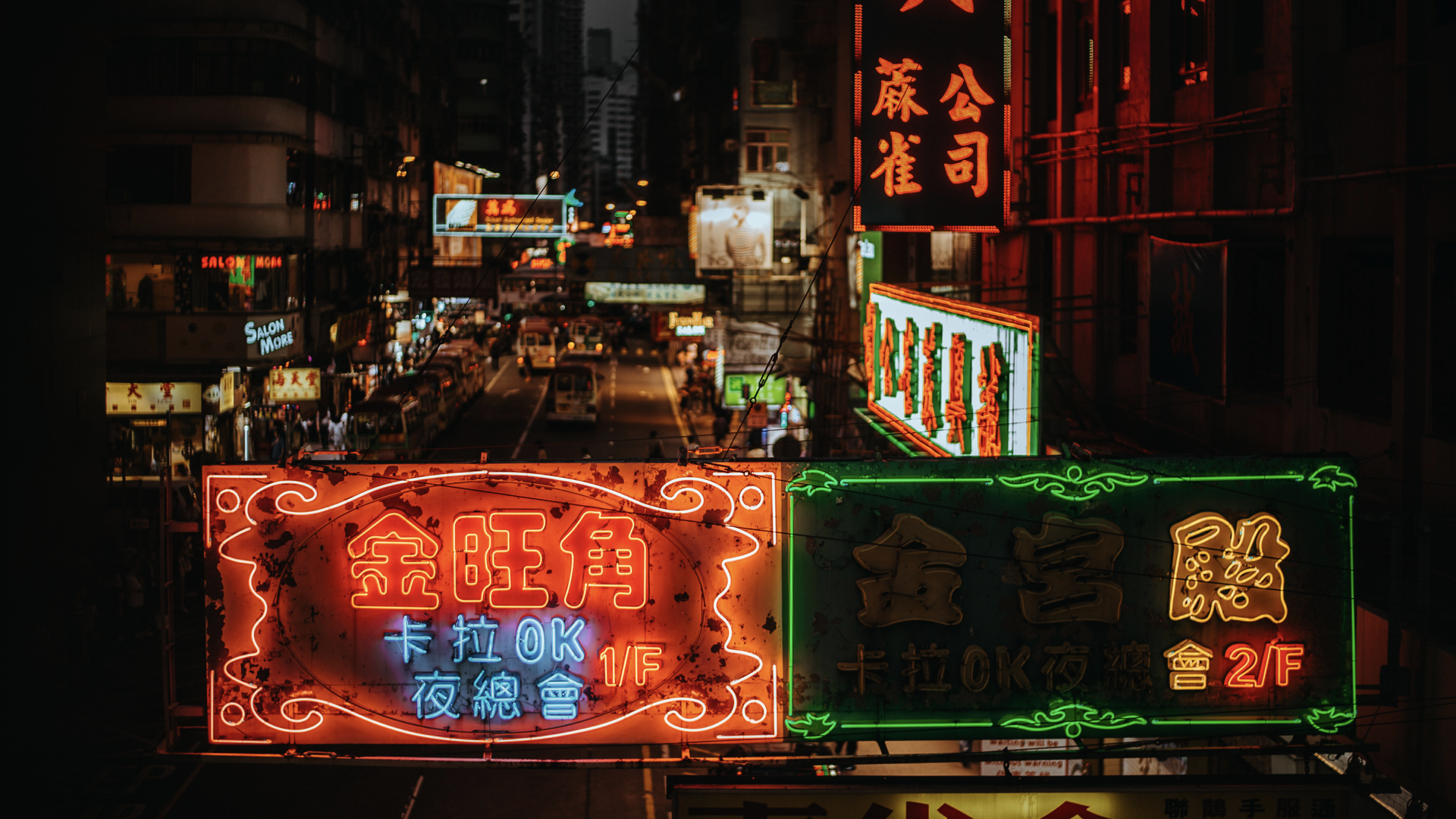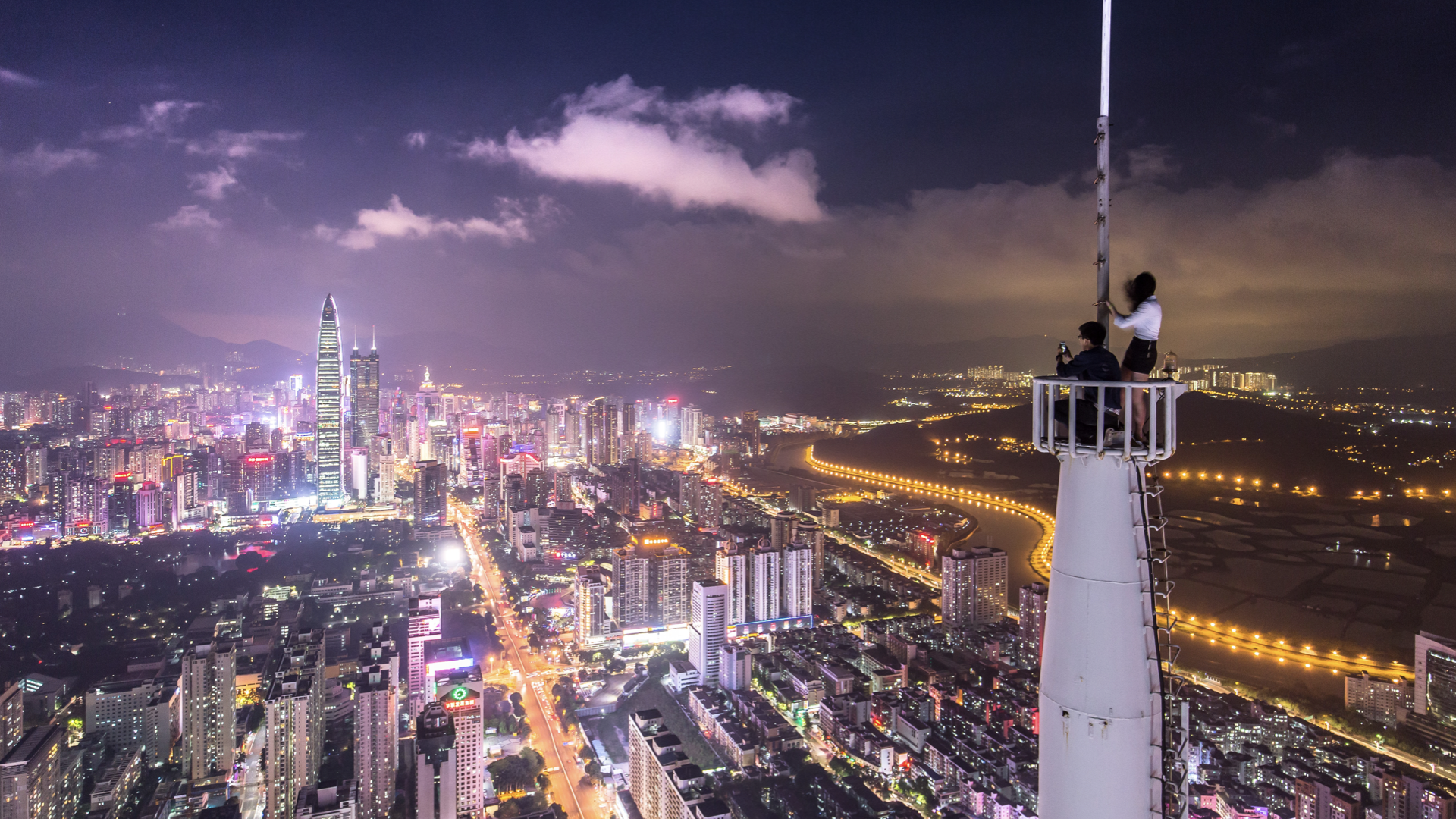Over the past few months, an expanding program of repression by the Chinese government has, according to The Washington Post, “spared almost no sector.” In recent weeks, Beijing announced a series of measures intended to shape youth culture in China according to what the state considers healthy and moral, even by banning the publication of lists ranking celebrities by popularity, regulating the “chaos” of celebrity fan clubs, and prohibiting minors from playing online video games outside of three specific hours most weeks. The social-media platform Weibo suspended 21 K-pop fan accounts over what it called “irrational star-chasing behavior.” The government also banned “sissy men and other abnormal aesthetics” on television in an effort to enforce traditional gender norms. What’s going on?
Ian Johnson is a senior fellow for China studies at the Council on Foreign Relations. For Johnson, the Chinese government’s actions illustrate the Communist Party’s growing willingness under President Xi Jinping to enforce a narrow view of traditional Chinese culture and micromanage the personal lives of the Chinese people. Johnson sees Xi’s aggressiveness on these issues as a departure from the Communist Party norm in the decades since the Cultural Revolution ended in the late 1970s, which granted citizens a fair amount of autonomy in their private lives so long as they didn’t agitate against the party politically. It now sees pushing for traditionalism as a means of legitimizing itself with the Chinese people, and the fan frenzy around certain entertainers may be threatening that effort by normalizing non-traditional identities, even in subtle ways, in the minds of young people. With online gaming, Johnson acknowledges a legitimate concern about younger people spending too much time on their screens—and the challenge that poses to preserving traditional Chinese culture—but, he says, the government’s restrictions are a “typically heavy-handed” solution that may end up being largely ignored. Though Johnson believes these cultural crackdowns will have an effect, he notes that there’s a long history of Chinese people successfully skirting the government’s policies and disobeying its pronouncements over time: “There’s this cliche in China that the government has its policies and the grassroots has its resistance.”
Graham Vyse: What is fan culture like in China today? How would you describe the phenomenon the government is going after?
Ian Johnson: There’s a huge interest in popular culture in China, especially in K-pop—Korean pop music groups. That’s led to many fan clubs, so there’s a pretty vibrant scene among young Chinese people.
Vyse: Fan culture is obviously a mainstream phenomenon in the U.S. and the West more broadly, from sports rivalries to festivals like Comic-Con to people following celebrities and online “influencers.” How does Chinese fan culture compare to that?
Johnson: It tends to be more domestically focused—on stars and personalities who are probably not as well known in the West but quite popular in China. That’s not always the case, as there’s a huge interest in European football and the NBA, but music, for instance, tends to be more focused on Chinese groups.
Vyse: Is this fan culture influencing Chinese society in a meaningful way? Is it having social effects that it would be important to understand?
Johnson: You can see fan culture having somewhat altered an historically overwhelming heterosexual bias—the macho thing—in mainstream Chinese culture. K-pop groups, for example, tend to be a little more androgynous. Some of the stars tend to have a little more, let’s say, ambiguous sexuality. That can change society for young people and perhaps make certain things seem more acceptable than they might otherwise be in what’s still a fairly traditional society. Pop culture can change things on a subliminal level, but it’s not like there are protest singers challenging the government or anything overt like that, which wouldn’t be tolerated.

Vyse: What specifically does the government object to, and why is this crackdown happening now?
Johnson: The government has pushed what we might conceive of as traditional values with Chinese characteristics. There’s a tendency among certain politicians and movements in many societies around the world—including in the U.S. and Russia—to push what they call traditional values, but in China, those kinds of cultural battles weren’t fought quite as much in the past, because the government wasn’t quite as self-assured as it is now. With the ascendancy of Xi Jinping, the Chinese government has decided to go after more of these controversial or potentially sensitive issues.
If you want to look at the bigger picture here, the Chinese Communist Party was extremely weak and China was very poor after the Cultural Revolution ended in the late 1970s. The government made a social pact with the population: We’re going to focus on economic development and, by and large, leave you to do what you want as long as you don’t directly challenge the Communist Party in politics. The Tiananmen protests in 1989 were a kind of benchmark where the government said, That’s not going to be acceptable, but this was the social contract roughly from 1978 until 2012, when Xi Jinping took power.
A few years back, there were reports of gay marriages taking place in the countryside. Gay marriage was never allowed under Chinese law, but there was kind of a “don’t ask, don’t tell” policy, where you could more or less do what you wanted. Now the view is that people should conform to the government’s view of what’s normal: Guys should be clean-cut—but not too clean-cut, because you don’t want to go down the metrosexual route.
Under Xi, the party has pushed more into the personal sphere and tried more to micromanage people’s lives. It’s not fair to say this is a new Cultural Revolution. The Cultural Revolution from 1966 to 1976 was horrific and much more intrusive, with people storming into your house and burning books they didn’t like. It was much more brutal and violent. But the government today came to feel—after roughly 30 years of reform—that things had gotten a little too loose.
They cracked down on nongovernmental organizations and more harshly on dissidents than in the past and began to enforce a very Han Chinese-centric view of how society should be organized. In the religious sphere, Buddhism, Taoism, and folk religion have pretty much been left alone, but Christianity and Islam have been in the crosshairs because they’re seen as not representing traditional Chinese culture—as something brought in from the West. The effort to control popular culture is an effort to reassert state control and bring in “healthy” and traditional virtues. Men are supposed to be men and women are supposed to be women. So they recently targeted men who they saw as too effeminate.
Vyse: This includes banning certain men on television. What’s the backstory there?
Johnson: A few years back, there were reports of gay marriages taking place in the countryside. Gay marriage was never allowed under Chinese law, but there was kind of a “don’t ask, don’t tell” policy, where you could more or less do what you wanted. Now the view is that people should conform to the government’s view of what’s normal: Guys should be clean-cut—but not too clean-cut, because you don’t want to go down the metrosexual route.

It’s somewhat counterproductive to read everything through one person, but Xi Jinping comes from this North China milieu of guys who like to drink grain alcohol with their meals, smoke cigarettes, and do all the things guys are supposed to do. That’s more the norm, and people not conforming to it are considered wayward and needing to be brought in line, whereas in the past there was more tolerance—not because the party was more tolerant but because it didn’t have as much political capital to spend on things like that.
This is an effort by the state to impose a narrow view of traditional Chinese culture. I say “narrow,” because traditional China was actually much more tolerant in some ways. There were many examples of gay men and women who found a way to exist and even thrive in those societies. It wasn’t a utopia in the past, but it wasn’t as intrusive as it can be today.
Vyse: Recent patterns of cultural repression also include limiting the amount of online gaming children are allowed to play and targeting fan clubs. What’s happening there?
Johnson: K-pop has very active fan clubs that follow all the latest movements of these music groups. The government has been skeptical of them for a while. Partly it had to do with geopolitical issues around South Korea and various missile-defense systems, but now they’re being targeted because they’re considered not to be manly enough.
Xi Jinping comes from this North China milieu of guys who like to drink grain alcohol with their meals, smoke cigarettes, and do all the things guys are supposed to do. That’s more the norm, and people not conforming to it are considered wayward and needing to be brought in line, whereas in the past there was more tolerance—not because the party was more tolerant but because it didn’t have as much political capital to spend on things like that.
On online gaming, even the American Academy of Pediatrics has been arguing that parents should limit the amount of screen time their children have, so you can say there’s some basis for concern, but the Chinese government’s solution is typically heavy-handed. This may be my bias as someone coming from an open society, but I think that perhaps a more lasting way to deal with issues like that is to have public education, to have experts talking in the media, and to have a free debate on the pros and cons. Those kinds of efforts have a lot better, longer-lasting impact than some top-down order that will probably be ignored 90 percent of the time.
Vyse: You mention that many Americans are also concerned about screen time for children, but is there anything more about this culture that the Chinese government is targeting—whether around online gaming or celebrities and their fans—that people from an open society would recognize as troubling or harmful?
Johnson: There are definitely legitimate concerns about the amount of time young people spend on games. Folk culture in Beijing, for example, would often involve training young people in traditional cultural practices like martial-arts fighting or walking on stilts. There used to be hundreds of groups around the city that did performances at temples and various festivals and so forth. It’s hard to get kids to do that anymore, because they’re either cramming for their college-entrance tests, which begin in secondary school, or they’re spending time playing computer games.

This is a problem in trying to keep traditional culture alive. It’s similar to the idea in Western countries that kids spending too much time on computer games are involved in a fantasy world and not out meeting people and being physically active.
Vyse: Are these kinds of crackdowns unusual in China?
Johnson: The Chinese Communist Party is always doing crackdowns. They’re in perpetual crackdown mode, and the reason is because the crackdowns don’t work. Sure, you’ll see a decline in the number of metrosexual or ambiguous-looking people for a while, but then they could come back again. The party is good at mobilizing people for short-term things such as responding forcefully to COVID-19 and getting everyone locked down, but not so good at sustaining these things.
If you take everything the Chinese government says at face value, you’ll assume the government is absolutely powerful. But when you’re in China, you see the government makes these pronouncements and has a crackdown for six months and then—it’s not that everything goes back to the way it was before, but it isn’t quite as black and white as it can seem just by looking at government announcements. I don’t want to blithely dismiss the current pattern of repression as mere propaganda. It’s having an effect and hurting people. But there’s also grassroots resistance, and it’s not at all certain the government will succeed in its efforts. We shouldn’t accept the government’s claim that they’re implementing all of this and people are following it.
Folk culture in Beijing would often involve training young people in traditional cultural practices like martial-arts fighting or walking on stilts. There used to be hundreds of groups around the city that did performances at temples and various festivals and so forth. It’s hard to get kids to do that anymore, because they’re either cramming for their college-entrance tests, which begin in secondary school, or they’re spending time playing computer games.
Another way to look at the situation is that the government tried in the past to push Communist ideas, and that only went so far. Communist ideas weren’t that credible for many people. So, instead of those ideas, the government is now turning to traditional culture as a way to legitimize itself. This picked up under Xi Jinping, though it’s simplistic to say it started in 2012. The parallels to contemporary Russia are quite striking. The fundamental problem the Chinese Communist Party faces is that it’s not legitimized in any way—through an election, for example—so it’s constantly trying to show that it reflects the people’s will. They do many things that are popular—economic development and building high-speed rail. Holding the Winter Olympics, despite efforts to boycott them, will probably come across as a big success for China.
Vyse: You suggest that attempting to limit online gaming could be popular, but what about the broader cultural crackdown on fandom and the like?
Johnson: Some of it could be popular. For parents who think their kids spend far too much time compulsively following various celebrities, sure. In some ways, it’s kind of like when the Beatles were really big in the 1960s. There were parents who thought they were the Antichrist. Many people in Western countries hated the Beatles and didn’t want their kids to follow them.
Vyse: But there'd be no legitimacy to banning Beatles fan clubs in an open society.

Johnson: I’m sure there were many Evangelical pastors in the ’60s who wanted to, but it didn’t happen. There are similar debates in Western countries, but the Chinese Communist Party has so much power that it can push these things through in ways that are sometimes good, you might say, in terms of fighting COVID or building high-speed rail but sometimes drown out other voices.
Vyse: Does any of this speak to the limits of Chinese soft power right now?
Johnson: Chinese soft power is a disaster right now. They keep wanting to have soft power by setting up things like these Confucius Institutes, for example, but they’re not making the movies or products that grab people around the world. When Kung Fu Panda came out over a decade ago, people were like, “It’s kung fu. It’s a panda. How could this not be made by China?” But it was made by Hollywood. Now, of course, Hollywood has appropriated lots of different cultures, but it’s a sign that China doesn’t have great soft power.
We also see this in the declining number of students who study China or go abroad to China to study. Personally, I think Chinese culture is really attractive and interesting, but the way it’s presented by the party is as a series of downers. If you’re 20 years old and you’re considering where you’re going to study abroad, you may go to China because it’s got the world’s second-biggest economy and you’re studying business or Chinese studies, but increasingly, if you’re just a normal student then you’re probably not going to want to study in China. It just doesn’t seem like that interesting a place. It doesn’t have things like K-pop, which is worth 50 times more than all the Confucius Institutes put together. It gets people interested in Korean culture. People want to study Korean because of it. China has a lot of great things that could be great soft power, but the government is such a downer.
